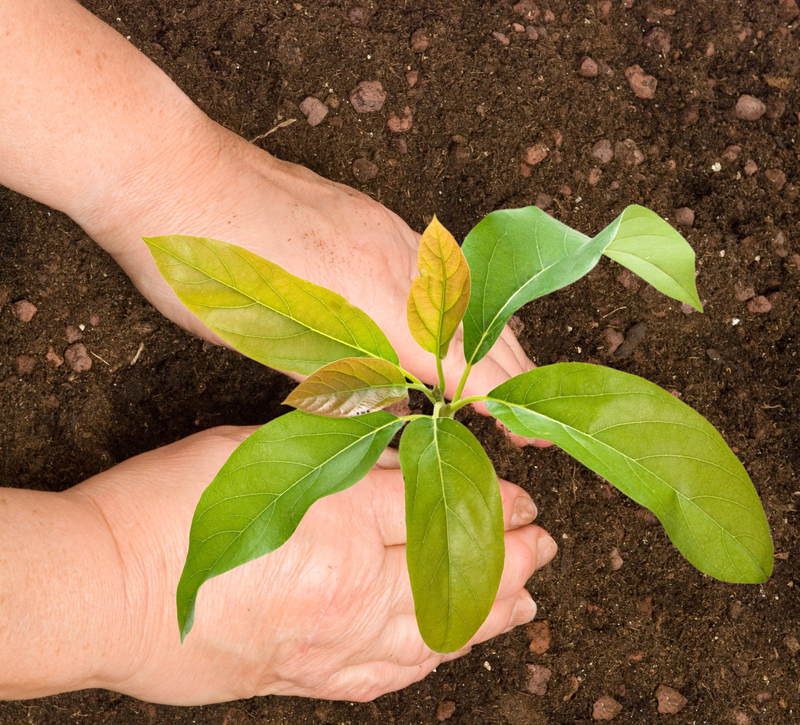Creating Ever-Blooming Garden Spaces
Posted on 09/03/2025
Creating an ever-blooming garden space is more than just a hobby; it's an art form. With careful planning, appropriate plant selection, and timely execution, you can have a garden that remains vibrant throughout the year. Whether you're a seasoned gardener or a beginner, this guide will provide essential tips and tricks for cultivating a garden that never loses its charm.
Planning Your Ever-Blooming Garden
The first step in creating an ever-blooming garden is thorough planning. Look into plant varieties that flower at different times of the year. Create a detailed garden plan that layers plants by their bloom cycle.
1. Spring Blooms: Consider tulips, daffodils, and lilacs that add a splash of color after winter.
2. Summer Blooms: Hydrangeas, roses, and sunflowers can fill your garden with vibrant hues.
3. Autumn Blooms: Chrysanthemums, asters, and sedums are excellent choices for fall.
4. Winter Blooms: Camellias, snowdrops, and witch hazel will provide color even in the colder months.

Selecting Perennials and Annuals
Perennials are the backbone of any ever-blooming garden as they come back year after year. However, sprinkling in annuals can add variety and fill gaps. Here are some popular choices:
- Perennials: Daylilies, peonies, and black-eyed Susans.
- Annuals: Marigolds, petunias, and zinnias.
Each type has its own set of care instructions, so make sure to understand their needs before integrating them into your garden plan.
Soil Preparation and Maintenance
Healthy soil is crucial for the success of your garden. Conduct a soil test to determine its pH level and nutrient composition. Based on the results, amend the soil to provide an optimal growing environment. Regularly add organic matter like compost to enrich the soil and promote healthy root growth.
Prune and deadhead plants as needed to encourage new blooms and maintain a tidy appearance. Regular weeding will also ensure that your plants are not competing for nutrients with unwanted visitors.
Watering and Fertilization
Watering your garden correctly is another pivotal aspect of creating an ever-blooming garden. Different plants have different water needs, but a general rule of thumb is to water deeply and less frequently. Early morning or late evening watering minimizes evaporation and ensures your plants get the hydration they need.
Using an all-purpose, slow-release fertilizer can provide the essential nutrients your plants require. Fertilize in early spring, mid-summer, and early fall to maintain sustained growth and blooming.
Incorporating Garden Structures and Accessories
Garden structures like trellises, arbors, and raised beds can add depth and dimension to your garden. Accessories such as garden statues, birdbaths, and decorative rocks can enhance the aesthetic appeal. Integrating these elements can create a more dynamic and inviting garden space.
Pros and Cons of Ever-Blooming Gardens
Pros:
- Continuous beauty and color throughout the year.
- Increased biodiversity, attracting beneficial insects and wildlife.
- Emotional and psychological benefits, making the garden a peaceful sanctuary.
Cons:
- Requires more planning and maintenance compared to seasonal gardens.
- Can be expensive to set up initially.
- Possible need for more water and nutrients, leading to higher upkeep costs.
Practical Tips for Maintaining Your Ever-Blooming Garden
1. Regular Monitoring: Keep an eye on your garden for early signs of pest infestations or diseases.
2. Seasonal Adjustments: Replace annuals with new varieties as the seasons change.
3. Companion Planting: Pair plants that enhance each other's growth and deter pests.
4. Use Mulch: It helps retain moisture and suppress weeds.

Takeaways
An ever-blooming garden is an ongoing project that requires dedication, but the rewards far outweigh the effort. Continual learning and adapting to your garden's needs will make the process smoother.
Conclusion
Creating an ever-blooming garden space is a fulfilling endeavor that promises year-round beauty and satisfaction. By planning meticulously, selecting the right plants, and maintaining your garden diligently, you can enjoy a vibrant and lively garden no matter the season. The key lies in understanding the needs of your plants and providing them with the best possible growing environment. Happy gardening!












